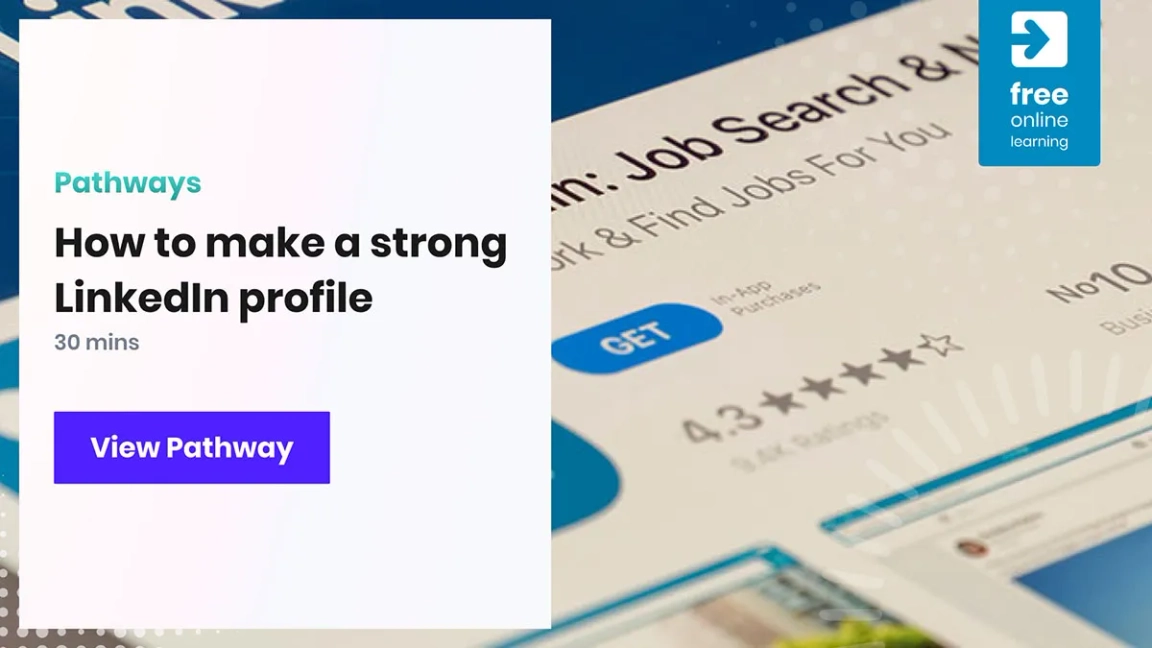Careers advice and planning
Make the most of LinkedIn
21 Aug 2023, 10:52
What you should do to be smart and stand out on LinkedIn.

gradireland spoke to recruitment Director Paul McClatchie about what you should do to be smart and stand out on LinkedIn
As a valuable career and job hunting tool to help you build and expand your professional network, LinkedIn really is a must have for graduates. A well curated, professional profile can help you keep up to date in your area of interest and also make yourself more appealing to employers. Recruiters are constantly using LinkedIn to research potential employees so you need to have a strong presence to increase your visibility when they are searching for candidates. According to Paul McClatchie, Founder of Engage People recruitment, having a professional and current LinkedIn profile can create a real benefit for recruiters. “For us, it’s a way of speeding up the recruitment process; it’s a very useful enabler when searching for a candidate with specific skills or qualifications or who has completed a certain course. It’s also very important for candidates to remember that employers themselves will often look at a candidate’s LinkedIn profile, so it’s vital that it presents you in the best possible fashion,” he explained.
So what do you need to do to get the most from LinkedIn?
Build an ‘all-star’ profile: follow LinkedIn’s profile building steps to increase your visibility in searches. To create an ‘all-star’ profile all you need to do is follow the process which LinkedIn suggests, to enhance your visibility.
Photo:
It may seem obvious, but the first step is a good quality, professional photograph. “Recruiters, or indeed anyone else, are far less likely to click on your profile if you don’t have a photo. Remember, LinkedIn is a professional platform, so the photo should be appropriate but not too serious. Recruiters are looking for confidence, not stuffiness, from candidates, but it is a business platform, it’s not Facebook,” Paul adds.
Be personal:
Make each connection personal. It’s all well and good to connect to someone on LinkedIn, but it’s even better to personalise each connection, the platform is all about relationships, so why not start them in the best possible way. If you receive a message to connect, send them a brief message to acknowledge this instead of just clicking ‘Accept’.
Keywords:
The key to being found is keywords. If you have a profile you’re proud of, give recruiters the best chance of finding it by including keywords for your desired role in your profile.
Headline:
Describe yourself and what you’re looking for. Customise your headline to reflect the opportunities you are seeking. Don’t just have ‘college graduate.’ Instead, something like “Commerce graduate with business experience seeking opportunities in corporate finance.”
Summary:
Ensure that your profile is complete and matches your own timeline of employment and education. The tone should be conversational and engaging, while remaining professional.
Reverse engineer your profile:
“This is a worthwhile exercise in terms of analysing what sector you want to work in and how you will fit in,” adds Paul. “Find out what skills people working in the industry in which you want to work have. Then try to match as many of them as possible to make your profile seem appealing to employers. It’s not a case of creating an impression of something you’re not, but instead it’s a curating process to tailor your profile for the industry in which you want to work.”
Post content:
Get involved in relevant online discussion. Whether it’s posting work you have done on your profile or contributing to discussions, interaction shows initiative and communication skills. Join relevant groups and if there is a discussion ongoing, join in. Post frequently if you feel you can make a contribution it increases your visibility on LinkedIn searches.
Connect responsibly:
LinkedIn is a professional network and there is a level of etiquette as to how you should connect, or request to connect with somebody. “It’s important that you don’t seem too familiar,” Paul McClatchie explains. “For example, don’t try and connect with someone from a company with which you have an interview. It can be off-putting.”
In summary, it’s important not to overstate the value of LinkedIn. A poor profile is not a deal breaker for a very good candidate and a good profile is not going to save a poor application. But it’s a tool that can add depth to a candidate and provide information that may increase their attractiveness to employers.
gradireland Editorial advice
This describes editorially independent and impartial content, which has been written and edited by the gradireland content team. Any external contributors featuring in the article are in line with our non-advertorial policy, by which we mean that we do not promote one organisation over another.


